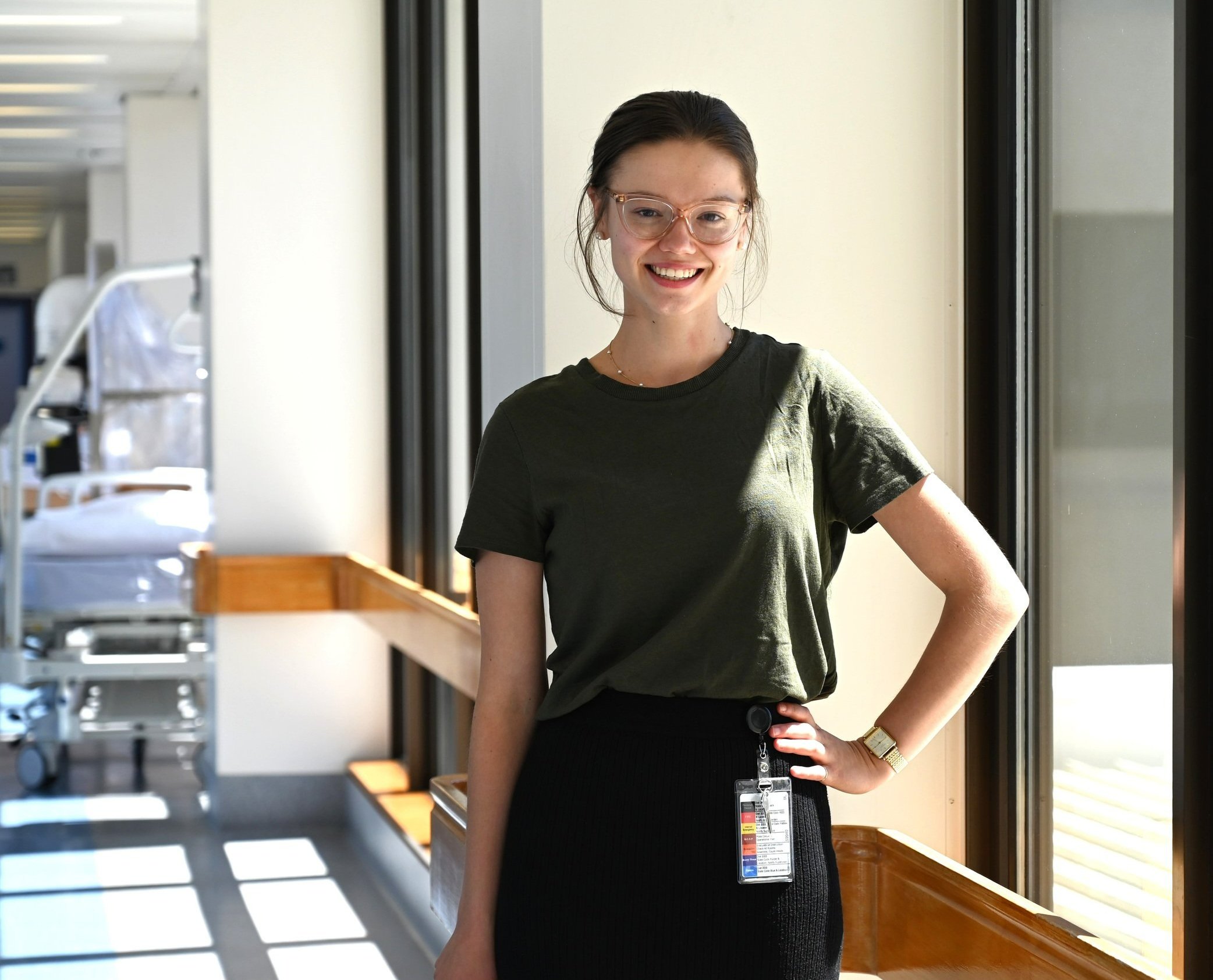Meet our 2024 medical student scholarship recipients
February 15, 2024
As part of our commitment to health education, the Clifford Craig Foundation is proud to support two annual Medical Student Research Scholarships, valued at $12,500 each.
The scholarships are aimed at providing fourth-year medical students with the necessary financial support to undertake a designated independent research project at the Launceston Clinical School and Launceston General Hospital.
Each year we are inspired by the stories of the life-changing impact the scholarships have on a student’s educational journey, as they embark on the next step towards a future in medicine.
After a competitive selection process, we are thrilled to announce the two recipients for 2024-25.
Congratulations to Panayiota ‘Peta’ Antypas and Josephine Read, who are both studying a Bachelor of Medicine and Bachelor of Surgery with the University of Tasmania.
“Research goes hand in hand with neurology, and I hope through my work I will be able to help patients.”
Peta Antypas
Panayiota ’Peta’ Antypas
Born and raised in Launceston, Peta has always been fascinated by understanding how things work.
While initially interested in law, it was the opportunity to integrate her love of science with a passion for advocacy that led to her pursuing a career in medicine.
Through her scholarship she will be “testing the waters” of a specialty in neurology, with a research project examining the impact of probiotics on social cognition in multiple sclerosis.
She has also been inspired by her own health experiences.
“I had a neurological scare a few years ago where I lost all function in my upper limbs,” she explained.
“It was a really difficult time and a real struggle, but it also helped me develop this really profound empathy for patients.
“That is where my passion for neurology comes from.
“I love the academic side of it, but my own experience of a neurological disability sealed the deal.”
Peta has been completing her degree through the University of Tasmania’s rural program, allowing her to complete her first three years of study in Launceston.
Inspired to stay in Northern Tasmania, she said the scholarship provided an extra incentive for her to pursue a career in neurology at the Launceston General Hospital.
“When I did neurology during my degree, I loved it,” she explained.
“The fact that there are still so many unknowns and so many complex conditions. Often patients are living with quite devastating conditions.
“Research goes hand in hand with neurology, and I hope through my work I will be able to help patients – if not now, but into the future.”
“I am very much a research novice, so knowing there is a good support team here is really great.”
Josephine Read
Josephine Read
Originally from Adelaide, Josephine moved to Hobart in 2021 to start her medical degree.
She decided to complete her fourth and fifth years at the Launceston Clinical School because of its reputation, as well as the legacy of the LGH as an excellent teaching hospital.
While she remains open minded about a future specialty, she said she is drawn to women’s health and hopes to find a research project that aligns with this area of interest.
“I think women’s health care has improved a lot in recent decades, but I think there is still a long way to go,” she explained.
“A part of that comes from a lack of research in women’s health and women’s health issues.
“The way it trickles down into how you practice medicine, the treatment options and even just the way you approach things as a doctor.
“There are still a lot of gaps and I would like to help fill them.”
Grateful for the opportunities that come with her scholarship, Josephine said a major incentive was the opportunity to continue her studies in Launceston, while undertaking medical research.
“The fact I can do this while I am studying is excellent,” she explained.
“I am very much a research novice, so knowing there is a good support team here is really great.
“There is a basis for me to ask questions as I navigate my way through it. It’s a safe first step into the research world.”



